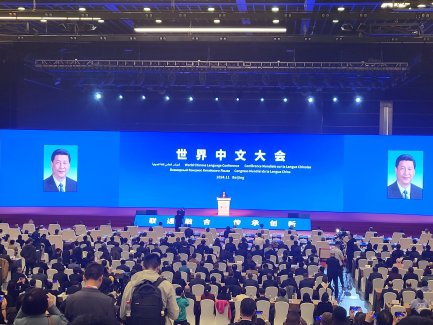Artikkelit

20.11.2024
A frog in the pan scenario? China policy update, Olli Suominen Beijing
China’s policies in the field of education and science are tightening. Detecting change may be hard however, as they take place over a long period, incrementally. China’s leadership is promising a more nuanced approach, but many promises remain unfulfilled. Yet, engagement with China remains important, and we should continue to do so wherever and whenever possible.
For those intimately China’s following policies, the big picture has been clear for years. Regardless of the sphere or sector of public we are talking about, China’s system of governance is becoming increasingly centralized, and increasingly autocratic. In other words, power is coalescing around the higher echelons of Chinese Communist Party, and especially around President Xi. The modus operandi is also clear, but one has to follow the developments for a while to take notice of the emerging pattern. Rather than sweeping, overnight overhauls of the entire system, the change has been incremental – yet continuous. Even though the actual premise has been proven to be false, the metaphor about the boiling frog is often used to describe this approach. Firstly, like the frog in the pan, one hardly notices the change taking place when it happens stealthily. Secondly, even if one notices something is changing, it is very hard to justify drastic policy responses when things have only changed ever so slightly from the way things were only a moment ago. A major unwanted turn might result in a swift response from others, but what if no such drastic change ever takes place overnight, but instead, develops over time? Where is the red line where one should reconsider ones options? The erosion of the so-called “One country, two systems” in Hong Kong has been often cited as a prime example of this dilemma.
The aforementioned dynamic applies also to the Chinese education and science sector. No major crackdowns have taken place. No total eradication of study subjects. No blanket bans on foreign travel. No total retreat from international university rankings. One could go on. Yet, we can pick any of the aforementioned themes or topics, and noticed that over time the screw has been tightened, bit by bit. Examples are numerous. One only needs to look at the past few years. In October this year it was reported that the regulations for foreign travel of China teachers had been tightened. In August “Xi Jinping thought” had reportedly been included in Hong Kong public curriculum. In July, the amount of compulsory military education in schools had increased. In March it was reported that the party and administrative leadership in Chinese universities are being fused together. Last year the Party General Office issued a warning for educators to “firmly oppose and resist erroneous Western views of ‘constitutional government,’ ‘separation of three powers,’ and ‘independence of the judiciary.’” Again, one could go on. The result has reportedly been, that educationalists and scholars in China are either opting out to leave the country, seek for early retirement, or to kowtow the Party line. The ramifications for education and research are obvious.
Yet, even though the examples are not as numerous, and largely still lacking concrete measures, there are also reports which tell a more nuanced story. Promises to expand the possibilities of foreign educational companies to participate in the Chinese education market. Promises to attract more foreign students into China. Promises to ease visa and residence permit rules for foreign researchers. For many old China hands, these are obvious signs of the continued existence of different factions and struggles over the political line inside the communist party, which have always existed. Yet, the scale is tilting. More and more promises remain unfilled, and reality and rhetoric are increasingly distancing from each other. One step forward, two steps back. Of course, developments such as China’s increasing domestic economic problems, and the upcoming Trump administration in Washington may well tilt the scales in the other direction. However, for the time being, there is no sign of such changes taking place.
Governments, higher education institutions, research institutions and individual researchers dealing with China’s education and research sector are struggling with the aforementioned dilemma. One on hand, everyone understands the need to engage with the global superpower that China is. On the other hand, engaging it is becoming increasingly challenging, especially due to the incremental changes taking place, which makes coordinated policy responses extremely difficult, and leaves actors to bear the ramifications of their decisions alone. There is still plenty of untapped potential and mutually beneficial forms of cooperation ranging for lifelong learning to vocational education and research in health sciences, for example. But we should also come up with contingency plans, which take into consideration not only the possibility of drastic overnight changes, but also the possibility of a change which is constantly taking place in front of our eyes, but at a pace, which is hardly noticeable. This is a scenario for which, to my experience, most actors are not prepared.
Text and photo: Olli Suominen. China’s vice-president Han Zheng delivered president Xi Jinping’s greeting words to the 2024 World Chinese Language Conference in Beijing. Xi’s omnipresence in Chinese public life is becoming strikingly clear.
